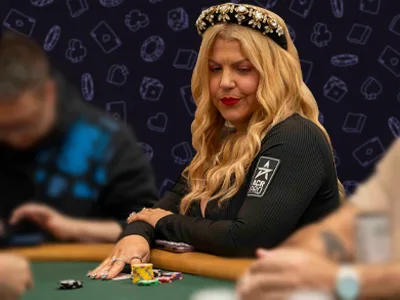Effective aggression isn’t about bluffing every hand; it’s about applying pressure at the right moment Using aggression effectively with weak hands in Texas Hold’em is a skill that separates experienced players from those who only play their cards at face value. Aggression doesn’t mean recklessly pushing chips in with nothing—it means applying pressure at the
Tag: Texas Holdem
Playing Short Stack: Effective Strategies for Heads-up Play
By exploiting your position, you can have a significant impact despite being at a chip disadvantage Playing with a short stack in heads-up poker presents unique challenges, but it also provides opportunities for aggressive play and strategic positioning. When your chip stack is low, every decision becomes more critical, and maximizing your chances requires a
Adjusting to Different Playing Styles at the Start of a Texas Hold’em Tournament
Staying flexible gives you a better chance at navigating the early stages and transition smoothly into the deeper parts of the tournament The early stages of a Texas Hold’em tournament can set the tone for the rest of your run, and one of the most important skills at this point is recognizing and adjusting to
Using Positional Awareness To Combat Cold Draws at Texas Hold’em Tables
Staying calm, using your position wisely, and picking your spots carefully will help you survive rough patches When the cards just aren’t coming your way in Texas Hold’em, it’s easy to get frustrated and start making poor decisions. Cold draws—runs where you’re consistently missing flops, turns, or rivers—can drain both your chip stack and your
Reading Opponents: What Their Muck Says About Their Texas Hold’em Game
Every decision at showdown tells a small part of their story and collecting the pieces gives you an edge In Texas Hold’em, observing what opponents choose to muck—or not reveal—at showdown can offer useful insights into their overall playing style. Even without seeing a full hand, small details about their decisions and timing can help
Exploiting Weaknesses in Your Opponent in Heads-up Texas Hold’em
Exploiting weakness in heads-up play means staying alert, playing confidently and knowing when to push In heads-up Texas Hold’em, success often hinges on a player’s ability to read and respond to their opponent’s tendencies. With only two players in the hand, the dynamics are faster, the ranges wider, and psychological elements play a much larger
How Cold Decks Impact Opponents’ Playing Style in Texas Hold’em
Even when the cards aren’t falling your way, you can still influence the table dynamic Cold decks in Texas Hold’em—stretches where players consistently receive poor hands—can affect more than just the player experiencing the drought. While most focus on how cold runs damage a player’s momentum, it’s equally important to recognize how they shift opponents’
Mucking in Live Poker Tournaments: Strategies and Considerations
Mastering the art of mucking is about knowing when to let go and protect your chips Mucking in live poker tournaments is an essential concept that often goes overlooked, yet it plays a pivotal role in strategic decision-making. The term “mucking” refers to folding your cards face-down when deciding not to continue with a hand.
How Verbal Interaction Can Inform Your Heads-up Texas Hold’em Decisions
Verbal interactions in heads-up Texas Hold’em serve as an additional layer of information In heads-up Texas Hold’em, verbal interactions can be a crucial part of gaining insight into your opponent’s strategy and mindset. Unlike full-table play, where players are often more guarded in their behavior, heads-up play opens up opportunities for psychological warfare and subtle
Adjusting Your Overall Strategy When Facing a Cold Deck in Texas Hold’em Tourneys
Watch who’s opening light, who’s flatting too wide, and who folds to pressure Running into a cold deck in a Texas Hold’em tournament can be one of the most frustrating experiences for any player. A cold deck means you’re getting consistently poor hands and not hitting flops, which can test both patience and strategy. However,
Mucking as a Strategic Move in Texas Hold’em: How and When To Implement
Use mucking as a calculated move and it can quietly become part of a winning strategy In Texas Hold’em, mucking is often seen as a routine act—folding a hand you don’t want to show. But in certain moments, it can become a subtle but effective part of a larger strategy. Knowing when and how to
Endgame Heads-up Strategies: When To Push and When To Fold
Mastering the timing of aggression and caution in heads-up play separates good players from champions In tournament poker, reaching heads-up play marks the final and most intense stage. With just two players remaining, every decision can significantly alter the outcome. Understanding when to push and when to fold in the endgame is key to sealing












